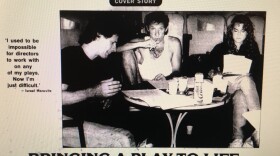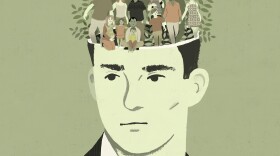
Rhaina Cohen
Rhaina Cohen is a producer and editor for NPR's Enterprise Storytelling unit, working across Embedded, Invisibilia, and Rough Translation.
Previously, she was a producer for Hidden Brain, where she brought together narrative journalism and social science research. Some of the most rewarding stories she worked on include those about why the #MeToo movement took off when it did, how American masculinity makes it harder for men to build close friendships and why we sometimes make decisions that baffle us. Cohen joined NPR as an intern for Planet Money.
She periodically writes for outlets such as The Atlantic, The Washington Post, and The New Republic. Her article about people who make a friend their life partner was selected by Longreads as one of the best articles of 2020. She received some of her earliest journalism training as a research assistant for authors. She worked on the New York Times bestselling book All The Single Ladies: Unmarried Women and the Rise of an Independent Nation and the biography Michelle Obama: A Life.
Cohen was a Marshall Scholar at Oxford, where she earned a master's in comparative social policy (and while there, competed in a dance style that hasn't yet taken off in the United States: acrobatic rock 'n' roll). She holds a bachelor's degree in American Studies from Northwestern University. As a 2018 FASPE fellow, she studied journalism ethics in Germany and Poland.
-
NewsDecades ago, a group of women accused a prominent playwright of sexual misconduct. For the most part, the complaints went nowhere. In 2017, more women came forward. This time, people listened.
-
NewsAs many as 40 percent of students who intend to go to college don't show up in the fall. Education researchers call this phenomenon "summer melt," and it has long been a puzzling problem.
-
NewsOlutosin Oduwole was a college student and aspiring rap star when he was charged with "attempting to make a terrorist threat." Did public perceptions of rap music play a role?
-
Violent crimes committed by Muslims are much more likely to be reported as "terrorism." And that has disturbing consequences for the way Muslims are perceived.
-
NewsBoys get the message quickly: a man is supposed to be strong and independent. That message, researchers say, has widespread consequences for men's social lives and physical health.
-
NewsEconomic theory rests on a simple notion about humans: people are rational. But a half century ago, two psychologists shattered these assumptions.
-
NewsA culture of racism can infect us all. On this week's radio show, we discuss the implicit biases we carry that have been forged by the society around us.
-
Women in the Middle Ages were excluded from many realms: the law, universities, and surprisingly, from friendship. Clearly, that's changed — and Kayleen Schaefer's new book examines how and why.
-
NewsWhat has changed in our minds and in our culture so that allegations of sexual harassment and assault are being taken so much more seriously than they were in prior decades?
-
NewsIt can seem arbitrary the way certain people fascinate us. But researcher Elizabeth Currid-Halkett says celebrity has a formula. So does being part of any social group — perhaps even your own.









